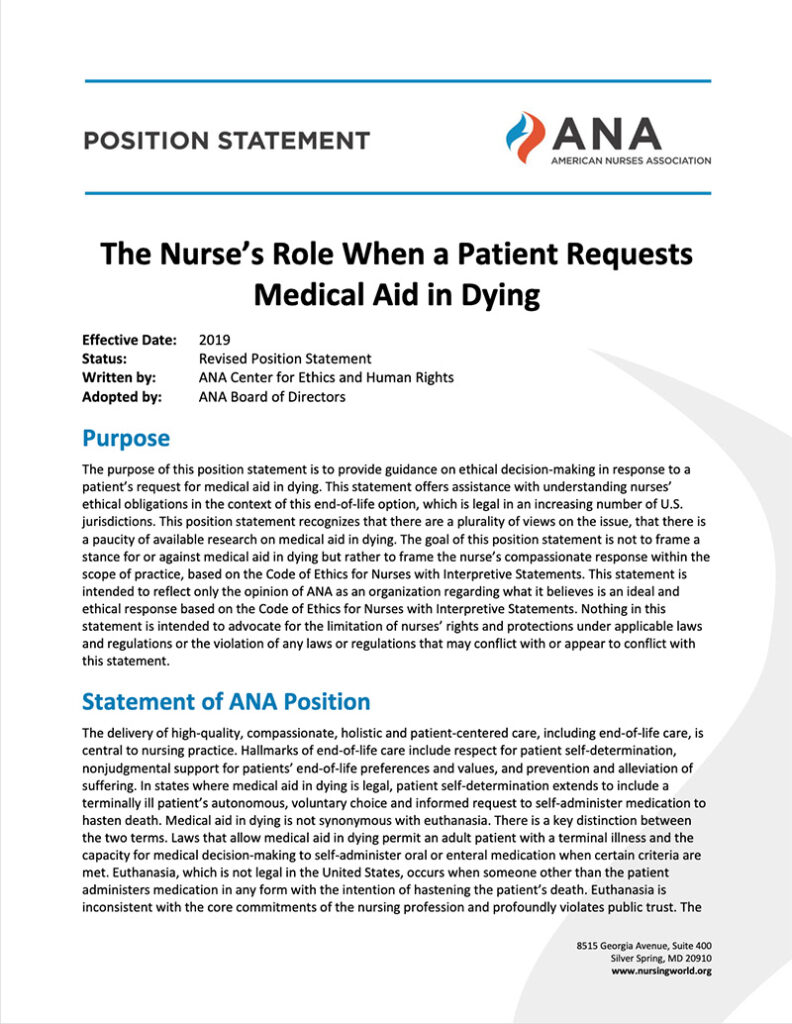OAAPN 2024 Conference
ANA POSITION STATEMENT
The Nurse’s Role When a Patient Requests
Medical Aid in Dying
Purpose
The purpose of this position statement is to provide guidance on ethical decision-making in response to a patient’s request for medical aid in dying. This statement offers assistance with understanding nurses’ ethical obligations in the context of this end-of-life option, which is legal in an increasing number of U.S.
jurisdictions. This position statement recognizes that there are a plurality of views on the issue, that there is a paucity of available research on medical aid in dying. The goal of this position statement is not to frame a stance for or against medical aid in dying but rather to frame the nurse’s compassionate response within the scope of practice, based on the Code of Ethics for Nurses with Interpretive Statements. This statement is intended to reflect only the opinion of ANA as an organization regarding what it believes is an ideal and ethical response based on the Code of Ethics for Nurses with Interpretive Statements. Nothing in this statement is intended to advocate for the limitation of nurses’ rights and protections under applicable laws and regulations or the violation of any laws or regulations that may conflict with or appear to conflict with this statement.
Statement of ANA Position
Menu
- Welcome OAAPN Conference Attendees
- Register Now: The Role of the APRN in MAID and End of Life Care Advocacy virtual event
- JAAPN: The Role of the Nurse Practitioner
- OAAPN Fact Sheet: Medical Aid in Dying
- ANA Position Statement: The Nurse’s Role
- Dr. Barbara Daly in the Dayton Daily News
- Dr. Maryjo Prince-Paul: Patient-Centered End-of-Life Care
- ANA-Ohio Profile – Exec. Dir. Lisa Vigil Schattinger, MSN, RN
- Online Petition

